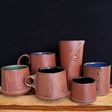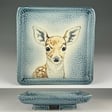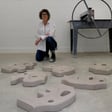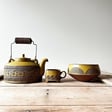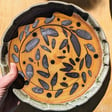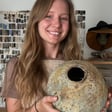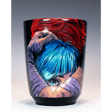
Intuitive Sculpting w/ Anna Shipulina
In this episode of 'Shaping Your Pottery,' host Nic Torres interviews Anna Shipulina, a mother, immigrant, and artist. Anna shares her experience of how embracing freedom in her pottery practice has helped her grow as an artist. She discusses the importance of doing what you love to avoid burnout and the significance of intuitive building. Anna also talks about how her role as a mother and immigrant has influenced her art, the transition from wheel throwing to hand building, and her inspiration from nature and the human body. She offers practical advice for overcoming imposter syndrome, involving children in the creative process, and discovering one's unique voice in pottery. You can learn more about Anna by checking out her Instagram https://www.instagram.com/annashipulina_ceramics/
Join The Shaping Your Pottery Newsletter By Clicking This Link shapingyourpottery.com/newsletter
For more episodes go to www.shapingyourpottery.com
00:00 Introduction and Newsletter Invitation 01:05 Interview with Anna Shipulina Begins 02:05 Anna's Pottery Journey 03:50 Balancing Art and Life 07:29 Overcoming Imposter Syndrome 09:22 Exploring Handbuilding and Sculptures 12:19 Finding Inspiration in Nature and the Human Body 14:21 Embracing Imperfections in Pottery 17:31 Discovering Your Unique Voice 22:53 Final Thoughts and Advice 23:49 Conclusion and Newsletter Reminder

